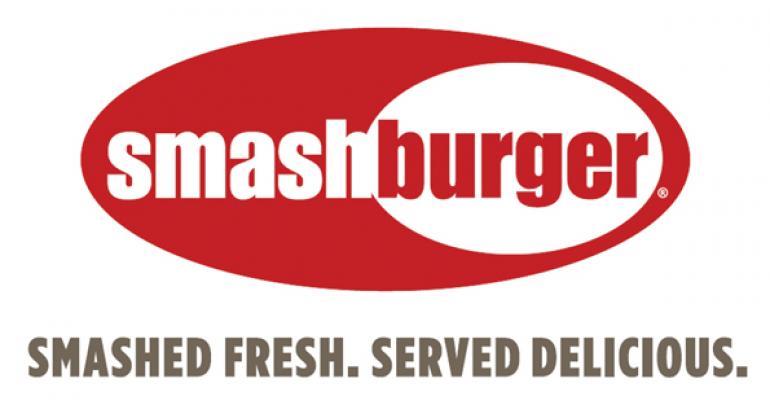In the better-burger race, Smashburger is gunning to become a national contender with 272 units in 32 states and five foreign countries.
Known for its “smashed-to-order” burgers, with beef patties flattened on the grill to sear in juices, Denver-based Smashburger was founded in 2007 by Rick Schaden, a co-founder and former owner of the Quiznos sandwich chain. Smashburger is owned by Schaden’s private-equity firm Consumer Capital Partners.
Co-founder Tom Ryan, who also serves as the chain’s chief concept officer, has been working on differentiating Smashburger’s menu, which includes a lineup of regional burgers in addition to signature favorites.
2014 Second 100 top 10 growth chains at a glance >>

In Los Angeles, for example, guests might find a burger topped with crispy wontons, fresh cucumber, cilantro, ginger dressing and a fried egg on a black-and-white sesame seed bun. In Brooklyn, a burger might be topped with grilled pastrami, aged Swiss and yellow mustard on a pretzel bun.
More recently, the chain has pushed to raise the level of ingredient quality. In July, for example, the chain rolled out the use of organic arugula and mushrooms on a Truffle Mushroom and Swiss burger. The menu includes gluten-free buns as an option, and last year Smashburger added organic beverages, including the Honest Fresh-Brewed Organic Tea line and apple juice, along with Horizon organic milk. More all-natural ingredients are coming to the menu soon, officials say.
Earlier this year, Scott Crane, Smashburger’s chief executive, said the company was exploring strategic options, including the possibility of an initial public offering. Last year, the company closed on a $35 million round of financing with Golub Capital to fund growth.
Crane said he expected Smashburger to surpass the 300-unit milestone this year, with the addition of 60 to 70 restaurants in 2014, including about 30 corporate locations.
Keys to Growth:
Positioning. Smashburger can compete in both the quick-service and better burger world, but also against other fast-casual players such as Panera Bread and Noodles & Company. Schaden is the primary shareholder of Consumer Concept Group, which operates the fast-casual Live Basil Pizza concept and the full-service Tom’s Urban brands. In Los Angeles, the three concepts are located together in what Ryan calls a “food pod” to better leverage real estate and make use of broader dayparts – an idea that might appeal to developers.
Beer. The chain offers craft beer and wine, and some locations offer food-pairing suggestions that match local brews with regional burgers.
Profitability. Smashburger’s estimated sales per unit is climbing. In fiscal 2013, it topped $1 million in about 2,000-square feet, up from $987,900 the preceding year.
Skin in the game. Unlike competitors that are more heavily franchised, Smashburger is also growing with corporate locations.
Contact Lisa Jennings at [email protected].
Follow her on Twitter: @livetodineout





